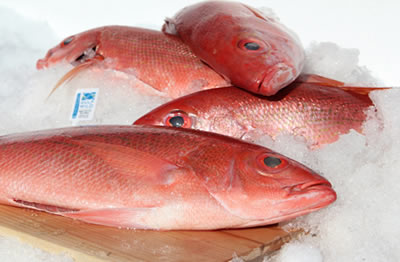Exclusive interview with Dr. Mukhisa Kituyi, Secretary-General of the UNCTAD.
Seafood, including fish, is one of the most traded food commodities in the world. The livelihoods of some 660 to 880 million people depend on the fishing sector. Yet the basis of this prosperity is fragile: wild stocks are under increasing pressure, and improvements are necessary to more effectively harness the power of trade within value chains and their related services.
In an exclusive interview, Mr. Mukhisa Kituyi, Secretary-General of the United Nations Conference on Trade and Development (UNCTAD), reveals how trade and trade policy work for the environment and the economy at the same time, while ensuring that local coastal communities as well as the rest of the population fully benefit from seafood trade.
Q: How can sustainable trade in seafood help protect our oceans and marine life?
A: Fish and seafood is one of the most traded food commodities. Some 35 to 38 per cent of the world production enters international trade channels, generating a value of US$ 152 billion in 2017. Over 54 per cent of this trade originates in developing countries.
Unfortunately, the rapid growth has been accomplished in several parts of the world in an unsustainable manner, mainly due to overfishing, harmful fish subsidies, pollution, and the effects of climate change. All this results in an estimated economic loss of US$ 83 billion per year for fisheries and over US$6 billion per year from diseases in aquaculture.
There is a need to introduce sound and responsible policies and practices from fish to dish. What type of policies and practices are we talking about? I personally believe that the introduction of effective fish management systems, banning of harmful fishing practices and subsidies, effective traceability systems, zero food waste and circular production processes, strict hazards controls and sanitary measures, and awareness by consumers can provide significant contributions.
Q: How can we ensure that particularly coastal populations in developing countries derive full benefits from seafood trade?
A: All along the fish and seafood value chain there are significant employment and economic benefits for local coastal communities. Around 60 million people were employed in fisheries and aquaculture in 2016 and some additional 200 million direct and indirect jobs occur along the value chain.
We need to enable and create opportunities for developing countries’ coastal populations to develop strategies for a competitive ocean-based sector. Best practices and innovations can greatly expand opportunities offered by the creation of local seafood and other marine-based products.
Q: What barriers are there to sustainable trade in seafood, and what is being done to address those?
A: The major challenges for fish and seafood exports and imports remain harmful subsidies and non-tariff measures. For example, harmful subsidies, if not regulated, can continue contributing to illegal, unreported and unregulated fishing and overfishing. Fisheries subsidies fuel unfair competition between large fleets and artisanal fishermen and -women, as 84 per cent of fish subsidies tend to benefit large scale fleets. The challenge is, how can Member States seriously commit to eliminate harmful subsidies and convert its funds for investment in fisheries sustainability? UNCTAD and partners such as UN Environment and FAO are directly supporting negotiations on fish subsidies by providing inputs and holding dialogue and consensus-building efforts in its Second Oceans Forum in July 2018.
Q: How can trade policy help countries to further benefit from seafood trade and enhance the health of our oceans?
A: Trade and trade policies can facilitate the transition to sustainable ocean-based economies by increasing resource efficiency, improving the environment, enhancing inclusiveness, and creating new green business opportunities.
Trade policy can also be an enabler of sustainable practices along the value chain. In the case of seafood, this is crucial as we have already arrived at a ceiling in wild capture that could only be expanded via aquaculture, zero waste, and efficient use of all parts of the harvest.
As part of recently adopted Charlevoix Blue Print for Healthy Oceans (2018), G-7 Members have committed to address illegal, unreported and unregulated (IUU) fishing, and other drivers of overexploitation of fish stocks, including by prohibiting harmful fish subsidies. According to the Blue Print, fish subsidies need to be collectively addressed through new rules in the World Trade Organization.
UNCTAD, UN Environment and FAO support countries in these efforts at the multilateral level, and by way of national-level policy design and implementation. To step up current efforts, the three agencies are proposing a SDG 14 trade-related joint plan of action. However, endorsement and support from governments will be crucial to realize this endeavor. The Oceans Forum can provide a platform to discuss what actions and new partnerships are required, in order to safeguard our oceans and maximize the benefits of sustainable fish trade for coastal communities, particularly in developing countries.
To this end, this year’s Second Oceans Forum on the Trade-Related Aspects of SDG 14 will gather experts to analyze and share national experiences, and identify best practices around fisheries, trade and the environment. The objective of the Ocean Forum is to propose specific actions and policy recommendations for harnessing trade to conserve and sustainably use the oceans, seas and marine resources.
First published by UN Environment on 16 July 2018

